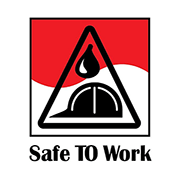Covid-19 is an infection caused by a coronavirus related to the common cold virus. Those affected by COVID-19 can exhibit symptoms ranging from mild to severe, similar to the cold and flu, such as fever, cough and difficulty breathing. They can also experience nausea and diarrhea. In some cases, those who have COVID-19 may show no symptoms.
Get support from team members: Develop a buddy system.
All the issues you might need to address during this pandemic situation may feel overwhelming. It can be useful to identify which things are actually problems that need to be solved or addressed, and which are just worries that are not necessarily grounded in reality. Click here for some steps you can take to resolve issues that come up for you.
This time may be very challenging for children and adolescents, some of whom might not understand the reasons for school closures and the cancellation of extracurricular activities. In addition, they are likely to be bombarded with information through social media and from their friends that can cause anxiety and alarm.
Young people may also sense the anxiety of their parents, and worry about their own health and that of other family members. For example, young children may not understand why they can no longer hug a grandparent.
Children need to be reassured in a way that is age appropriate. Click here for some tips on how to talk to your children and family.
Our stress and anxiety generally cause us to focus on negatives and trigger “what if” questions, such as “How will I cope if I get sick?” or ” How will I manage if I have to self-isolate?” They can also drive us to think worst case scenarios.
In stressful situations, people often overestimate how bad the situation can get, but underestimate how well they will be able to cope. People are resilient and have coping skills they use everyday.
Quarantine (separating well people who have been exposed to the virus, to see if they become ill) and self-isolation (separating people who have symptoms so that they can’t infect others, including clse family members) are sometimes needed to prevent the spread of a virus in a community including close family members. Click here for guide to self isolation which provides advice on how too proceed if you are in the situation.










Amalgamated Security Services Limited (ASSL) has been and remains the widely recognised leader in the expanding field of security and public safety services across Trinidad and Tobago, the Caribbean and internationally.
© 2024 All Rights Reserved Amalgamated Security Services Ltd.
You cannot copy content of this page
Javascript not detected. Javascript required for this site to function. Please enable it in your browser settings and refresh this page.